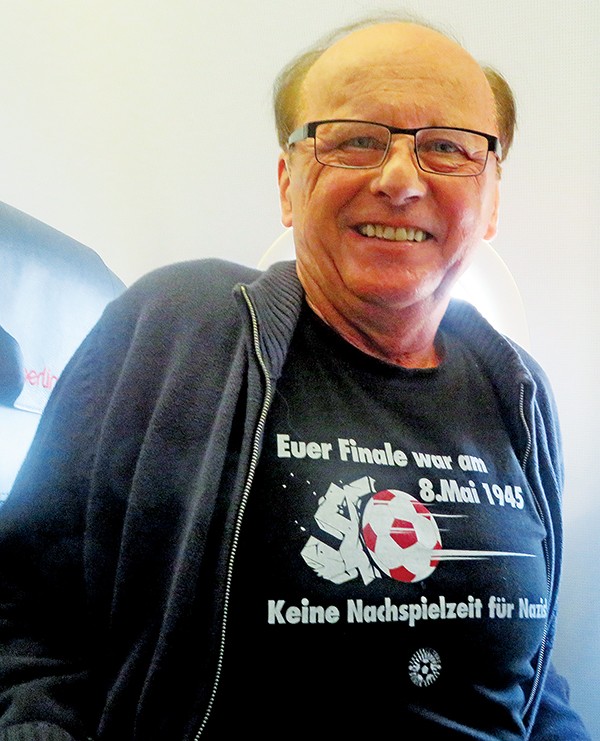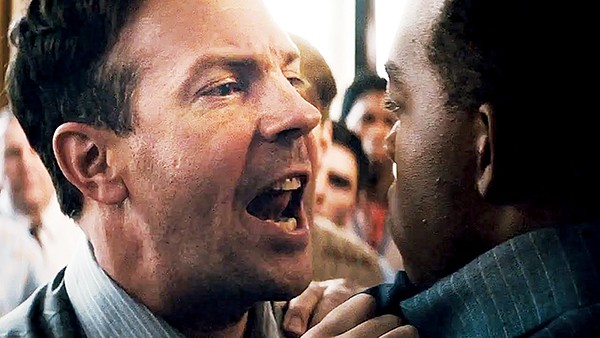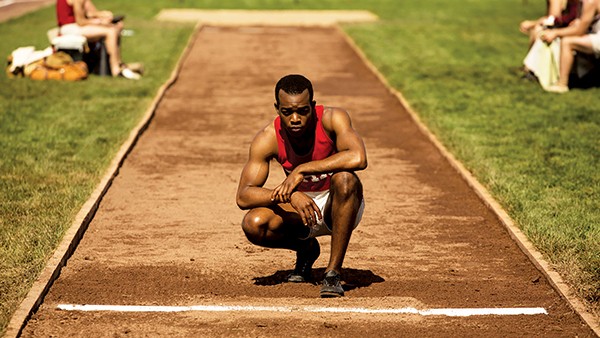In a bucket-list way, I had been increasingly curious about the continent of Europe, and, after decades of waiting and a couple of false starts, I finally made it over in September of 2015, signing up with a tour organized by David Pickler, the longtime president of the (old) Shelby County Schools board, in conjunction with the American Public Education Foundation.
That trip, organized roughly as an homage to the U.S. effort in World War II, started out in Munich with Oktoberfest and continued into Luxembourg, Belgium, and France, with key stops in Bastogne and Normandy and ending finally with a whirlwind look at the sights in Paris.
Valuable as the experience was, it still left a lot of bucket to fill, and, when I happened to read online about a bigtime high-tech fair, the venerable IFA (Internationale Funkausstellung), set for Berlin in early September, something gadget-minded in me figured it was time for Round Two, especially since my Flyer colleague Chris McCoy had further whetted my interest with an intriguing film column about Leni Riefenstahl’s epic documentary of the 1936 Berlin Olympics. You know, the one where Jesse Owens put the black American athlete on the map in the very citadel of white supremacy.
 Jackson Baker
Jackson Baker
Helmut Cohen of Berlin
To cut to the chase, soon enough I was in Berlin — in the vicinity of Alexanderplatz, an oasis of youth culture, night life, and big-box shopping. In East Berlin, as it happens. The city’s once-divided halves, a quarter century after the Wall came down, are well blended. The communist place names — Karl Marx Allee, Rosa Luxemburg Strasse, etc, are still there, though, and there is even a fair-minded museum of the erstwhile German Democratic Republic.
Not so with the Nazi past. Hitler’s bunker is paved over, a parking lot for an apartment building, its erstwhile existence attested to by a signpost. The old Reich Chancellery? Long gone, replaced by the Mall of Berlin.
Much of Berlin was in fact destroyed in World War II, but, by a happy decree of the fates, Olympia Stadion, the site of Jesse Owens’ triumph, escaped unscathed, for the likes of Usain Bolt to compete there in track meets even today.
One day, having taken in one of the every-Tuesday free lunch concerts by the Berlin Philharmonic, I left the orchestra’s modernist auditorium in the Tiergarten, Berlin’s version of Central Park, and outside, to my surprise, was a long row of German military units, doing seemingly endless repetitions of precision drills as they rehearsed their part in the next day’s funeral for Walter Scheel, the country’s 97-year-old former president, a liberal who had served with the famous West German Chancellor Willy Brandt and done much back in the day to bring about détente with Eastern Europe.
The band played “Deutschland Über Alles,” and, yes, the heels clicked impressively.
An election was on in Berlin, and, to be sure, there were, especially in the suburbs, a few signs on street-corner poles explicitly protesting Chancellor Angela Merkel’s open-door policy toward Islamic immigrants from the civil war in Syria.
The election results came in this week, well after I left. To most people’s surprise, the anti-immigrant party Alternative für Deutschland won 14.2 percent of the vote and will enter Berlin’s state parliament for the first time.
Meanwhile, above is my favorite election sign of the week, a T-shirt worn by Berliner Helmut Cohen, a seatmate on Air Berlin. It translates: “Your final was on May 8, 1945. No overtime for Nazis.”
Senior editor Jackson Baker is the Flyer‘s political columnist.

